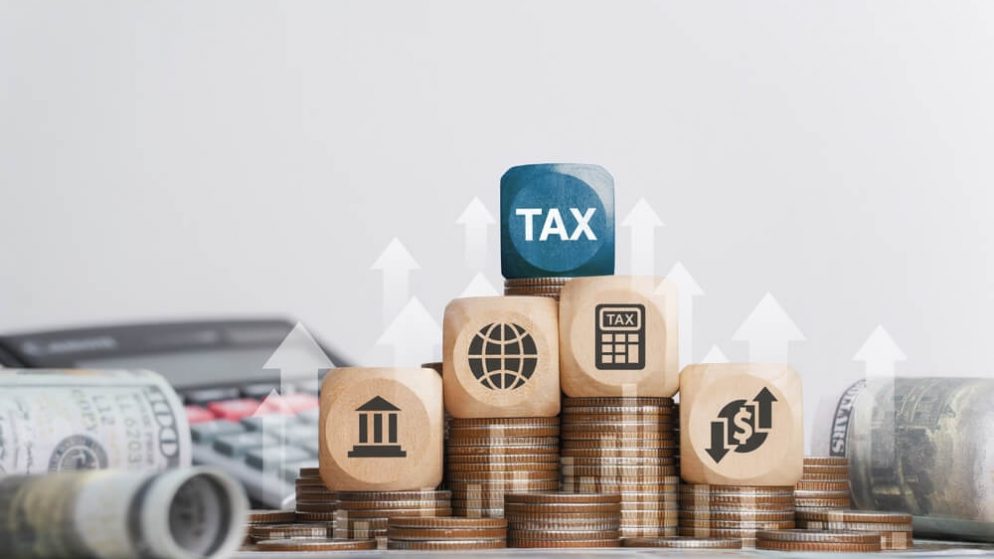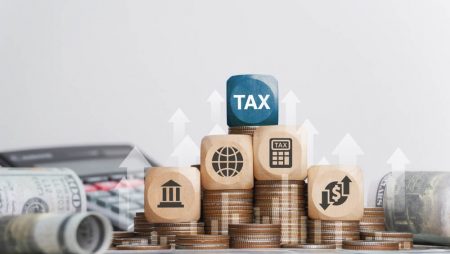

FanDuel Sportsbook is actively rallying its Illinois customers to contact state lawmakers and voice opposition against Governor JB Pritzker’s recent proposal to increase taxes on sports betting revenue. The proposed hike would see the tax rate on sports wagering operators in Illinois jump from the current 15% to more than double at 35%.
The move is part of the concerted efforts by the Sports Betting Alliance (SBA), an alliance specially formed by the top sportsbook operators in Illinois, including DraftKings, FanDuel, and BetMGM. Fanatics Sportsbook is also part of the coalition.
What we cover
SBA Members Mobilizing Opposition to Illinois Sports Betting Tax Hike
Over the weekend, FanDuel pushed out an alert through its app to Illinois-based users, urging them to take action against the tax increase plan. The message was captured and circulated widely via screenshot on social and news media.
More specifically, the notification asked customers to use the link provided to contact Governor Pritzker and state representatives to voice their opposition to the tax increase. It is a direct and deliberate call to action to mobilize FanDuel’s customers in Illinois to take a stand against the proposed tax hike.
Illinois is not the only state exploring an increase in sports betting taxes as a means to boost revenue. In New Jersey, a recently introduced bill proposes raising the online sports wagering tax from 14.25% to a substantial 30%.
Similarly, Ohio has already signed into law a tax rate increase that will double the state’s sports betting tax from 10% to 20% for the 2024-25 fiscal year. The state regulator and lawmakers in Ohio said that the tax hike was in response to aggressive ad campaigns by sports betting operators, as reported by Cleveland.com.
FanDuel CEO’s Stance
Governor Pritzker’s proposed tax hike is projected to generate an additional $200 million in revenue for Illinois. If it is passed, the increase will help plug gaps in the state’s $52.7 billion budget proposal, but industry stakeholders warn of potential adverse consequences.
Amy Howe, CEO of FanDuel, has articulated the company’s position on a recent spate of tax rate increases. She highlighted the need to strike a careful balance between state revenue goals and maintaining a competitive, consumer-friendly sports betting market.
In an interview with reporters, Howe explained that the government relations teams at FanDuel are skilled at educating regulators on finding the right balance between revenue generation for the state and fostering competition. She warned that if tax rates increase too much, it could hinder competition and push consumers towards the black market, ultimately not benefiting the state or consumers.
Other sportsbook operators argue that a big jump in tax could force them to offer less favorable odds and promotions to customers. According to SBA, this could potentially drive bettors towards illegal or unregulated betting channels.
Besides there are concerns that a 35% tax rate could make the Illinois market unsustainable for all but the largest and most established operators, ultimately reducing competition and consumer choice.
Following in the Footsteps of New York
The nation’s largest legal sports betting market, New York, currently imposes the highest online sports wagering tax rate at a staggering 51%. Notably, this substantial tax rate was negotiated and agreed upon by the sports betting operators themselves when entering the New York market.
Despite the exorbitant tax burden, the state has experienced a windfall in tax revenue from online sports betting. In the 2023-24 fiscal year alone, the Empire State collected $898.5 million in tax proceeds off $1.7 billion in total sports betting revenue.
However, efforts by operators to secure a reduction in New York’s tax rate through increasing the number of licensed sportsbooks have thus far been unsuccessful. Last year, DraftKings CEO Jason Robins suggested to state regulators that without a tax rate reduction, the company might be forced to offer less favorable odds to New York bettors.
Illinois: A Thriving Sports Betting Market
Illinois has established itself as one of the most robust sports betting markets in the nation. In 2022, the state generated an impressive $9.74 billion in total sports wagering handle, resulting in nearly $800 million in revenue for licensed operators. This translated to approximately $120 million in tax revenue for the state.
The growth trajectory continued in 2023, with Illinois surpassing the $10 billion mark in total handle. Remarkably, the state has recorded at least $1 billion in monthly sports betting handle for the past six consecutive months, with tax revenue peaking at $21.6 million in January 2024.
In the first two months of 2024 alone, Illinois has already collected close to $2.3 billion in sports betting handle, generating over $35 million in tax revenue.
United Front Against Tax Hike
In response to the proposed tax increase, major sportsbook competitors like DraftKings, FanDuel, and BetMGM have joined forces under the Sports Betting Alliance to collectively oppose the measure. These companies have been actively encouraging their Illinois customers to contact state representatives and express their disapproval of the tax hike proposal.
Proponents of the tax increase, including Governor Pritzker’s office, argue that even at 35%, Illinois’ sports betting tax rate would remain lower than the nation’s highest rate of 51% imposed by New York. They assert that the proposed increase is a necessary step towards ensuring corporations are paying their fair share of taxes, given the industry’s explosive growth and profitability in recent years.
As the debate rages on, it remains to be seen whether the combined efforts of sportsbook operators and their customer bases will be sufficient to sway state lawmakers away from Governor Pritzker’s tax hike proposal.
Wrap-Up
The battle over Illinois’ sports betting tax rate has emerged as a contentious issue, pitting state revenue interests against the concerns of the industry and its customers. As FanDuel and other major operators rally their user bases to oppose the proposed tax hike, the outcome will have far-reaching implications for the future of sports wagering in the state.
Striking the right balance between generating tax revenue and maintaining a competitive and consumer-friendly sports betting market will be crucial for Illinois’ long-term success in this rapidly evolving industry.

